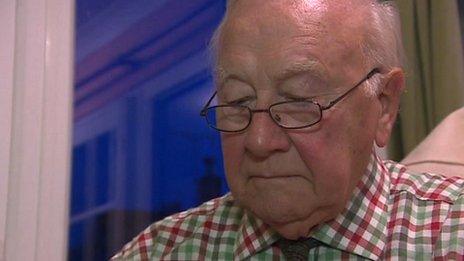Junior doctors' strike: Why is there no Wales dispute?
- Published
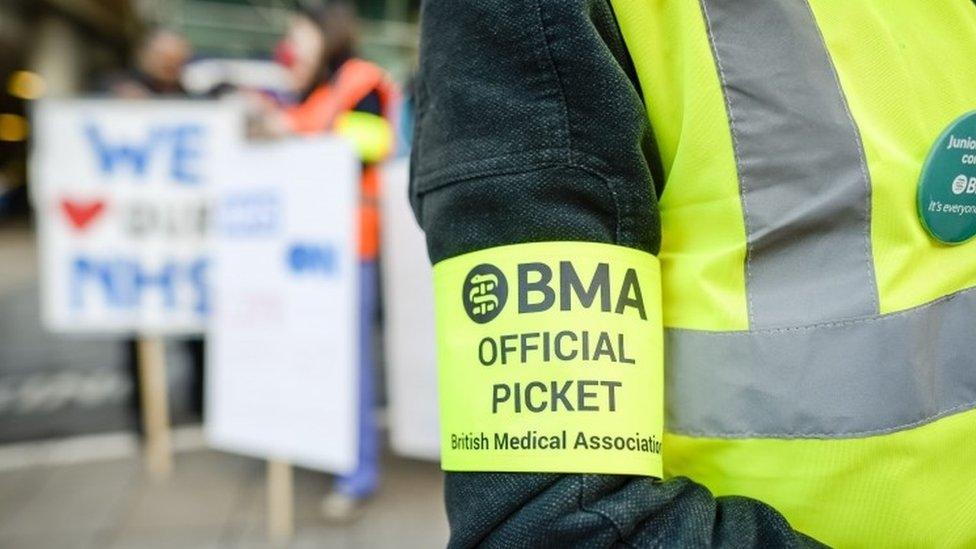
A picket line just across the border in Bristol
Hospitals in England are facing more disruption as junior doctors are due to stage a week of strikes in the ongoing dispute with the UK government over a new contract.
Why are junior doctors not on strike in Wales?
Because the NHS in Wales is devolved. Since 1999, the Welsh Government has been in charge of running the health service.
Ministers in Cardiff are responsible for negotiating the specific terms and conditions for doctors working in the Welsh NHS.
For the time being the Welsh Government, like the Scottish government, says it intends to stick with the junior doctors contract already in force.
Hence junior doctors in Wales will work as normal during the industrial action in England, which is due to take place from 08:00 to 17:00 BST from 12 to 16 September with more expected to follow.

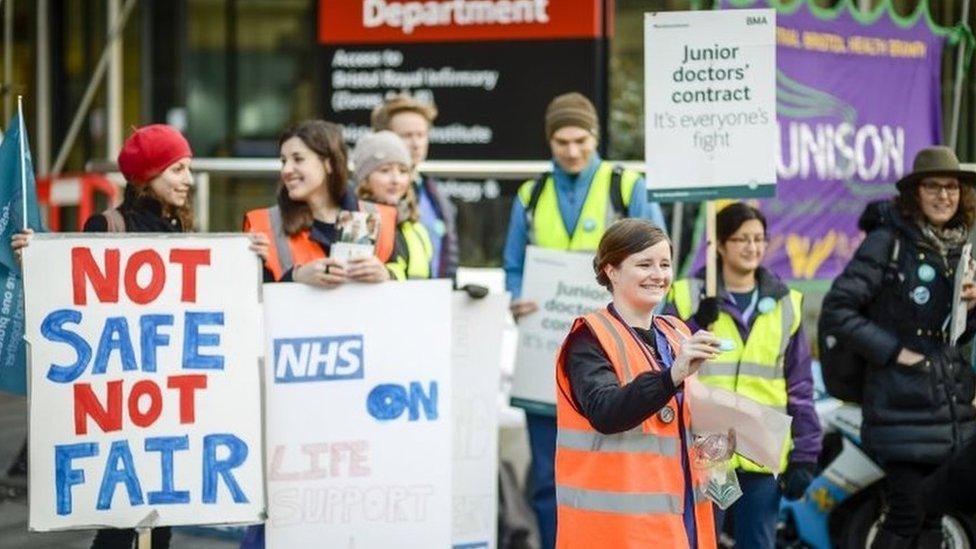
The BMA picket line outside Bristol Royal Infirmary
So will what's happening in England have no bearing at all on what happens in Wales?
The dispute between the junior doctors, the NHS in England and the UK government is extremely complex.
But generally speaking, it centres around introducing new working conditions including changing the way junior doctors are paid for working on weekends.
The UK government insists the new contract means the NHS in England will be better placed to provide better care seven days a week. But the BMA insists it will increase the pressure on junior doctors and result in a less safe care for patients.
While there are moves to improve access to care at weekends elsewhere in the UK, the plans are not on the scale of what the government in England is trying to achieve.
For example, in Wales the focus has been on more weekend access to diagnostic tests, pharmacies and therapies rather than creating more seven-day working across the whole system.
But that's not to stay if big changes eventually occur in terms and conditions in England that the Welsh Government won't have to consider the implications carefully.
It would be very difficult for the NHS on both sides of the border with radically different contracts for staff doing similar jobs.
That's why until now the Welsh health secretary has, in my view, been cautious not to try to make too much political capital out of the dispute in England.
The Welsh Government is perhaps aware difficult negotiations, such as those that have occurred previously on GP and consultant contracts, may have to eventually take place here.
However the Welsh Government insists any negotiations it takes part in will be undertaken in the spirit of "partnership".
And last November, the then Health Minister Mark Drakeford encouraged junior doctors and medical professionals to consider working in Wales if unhappy in England.

Are any patients living in Wales affected by the action over the border?
Most patients living in Wales won't be affected.
But those patients from Wales who were scheduled perhaps to get specialist treatment in England could face disruption.
Similarly individuals - for example people living near the border in Monmouthshire and Powys who for reasons of geography generally get seen at hospitals in England - may see appointments postponed.

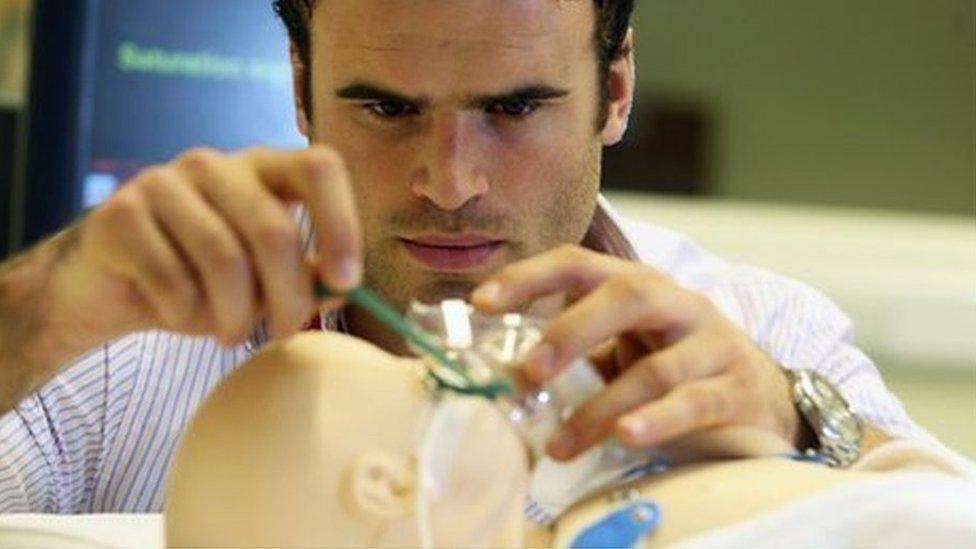
Wales centre Jamie Roberts, who graduated in medicine, backed junior doctors in England
So to what extent do junior doctors in Wales back the position of the BMA in England?
Generally, junior doctors in Wales support their colleagues in England.
BMA Wales said:, external "We fully support our colleagues in England who have planned industrial action. We are one profession, and we stand together.
"Across the UK, the BMA wants a contract that is fair for doctors, safe for patients and safeguards the future of the NHS everywhere.
"This is well supported: the BMA's ballot of its members received a near unanimous vote for industrial action in England. The approach taken by the government in England is an attack on us all."
There has previously been support for the action from Welsh rugby star Jamie Roberts. He is a qualified doctor, although has never worked as one. He's currently playing for Harlequins and studying for a MPhil at Cambridge.
He tweeted during the first strike: "The #juniordoctors have my full support today."
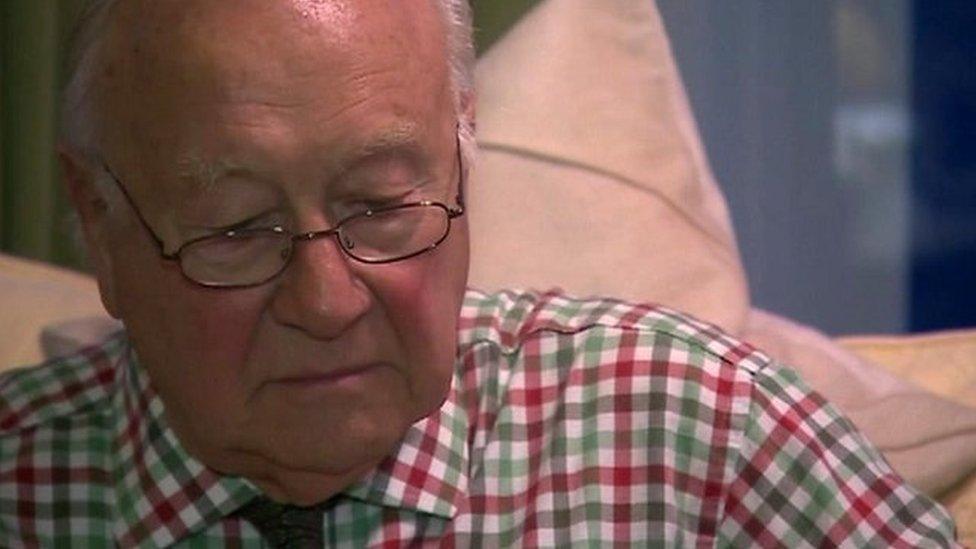
BMA fellow Russell Hopkins claims the organisation has become politicised
However not everyone agrees; the BMA's former Welsh council chairman, former surgeon Russell Hopkins, wrote to the Daily Telegraph, external when doctors went on strike in February, saying the organisation has "morphed" into a left-wing political body, giving "little thought to patient care".
The former surgeon and manager of the University Hospital of Wales in Cardiff also said he intended to hand back his fellowship of the organisation.
The BMA responded: "Everyone is entitled to their view and junior doctors certainly do not take the decision to take industrial action lightly."

What does the Welsh Government say?
Ahead of the latest proposed action, the Welsh Government has issued a statement.
"We prefer dialogue and agreement over dispute and imposition and we will not impose a junior doctors contract here in Wales," said a spokesman.
"Wales has a strong tradition of working in partnership with our staff and their representatives and we've had constructive talks with BMA Cymru regarding the ongoing dispute in England.
"We welcome their plans to survey junior doctor members to judge their mood in relation to the contract situation.
"We will only move to discuss a new contract for junior doctors when we judge the time is right. In the meantime, we continue to offer attractive working arrangements and a positive training experience, based on the existing contractual arrangements."
The spokesman said they would also "seek to ensure there is no adverse impact" on Welsh patients who would routinely access emergency and planned care service at English hospitals.
- Published1 September 2016
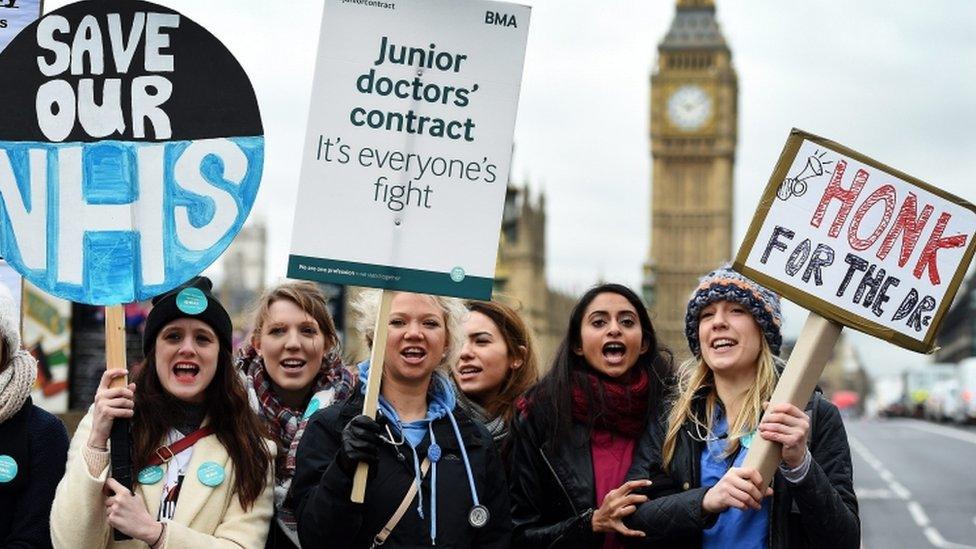
- Published10 February 2016
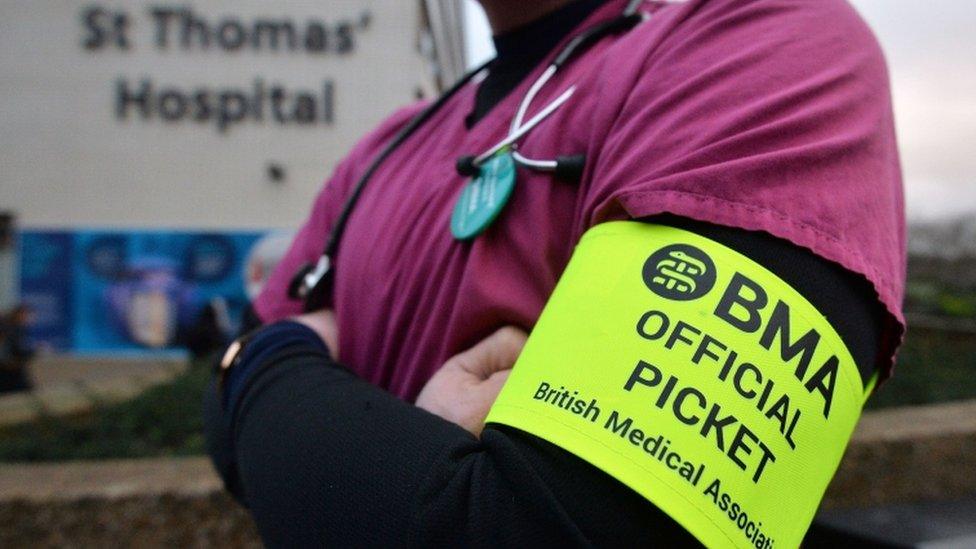
- Published10 February 2016
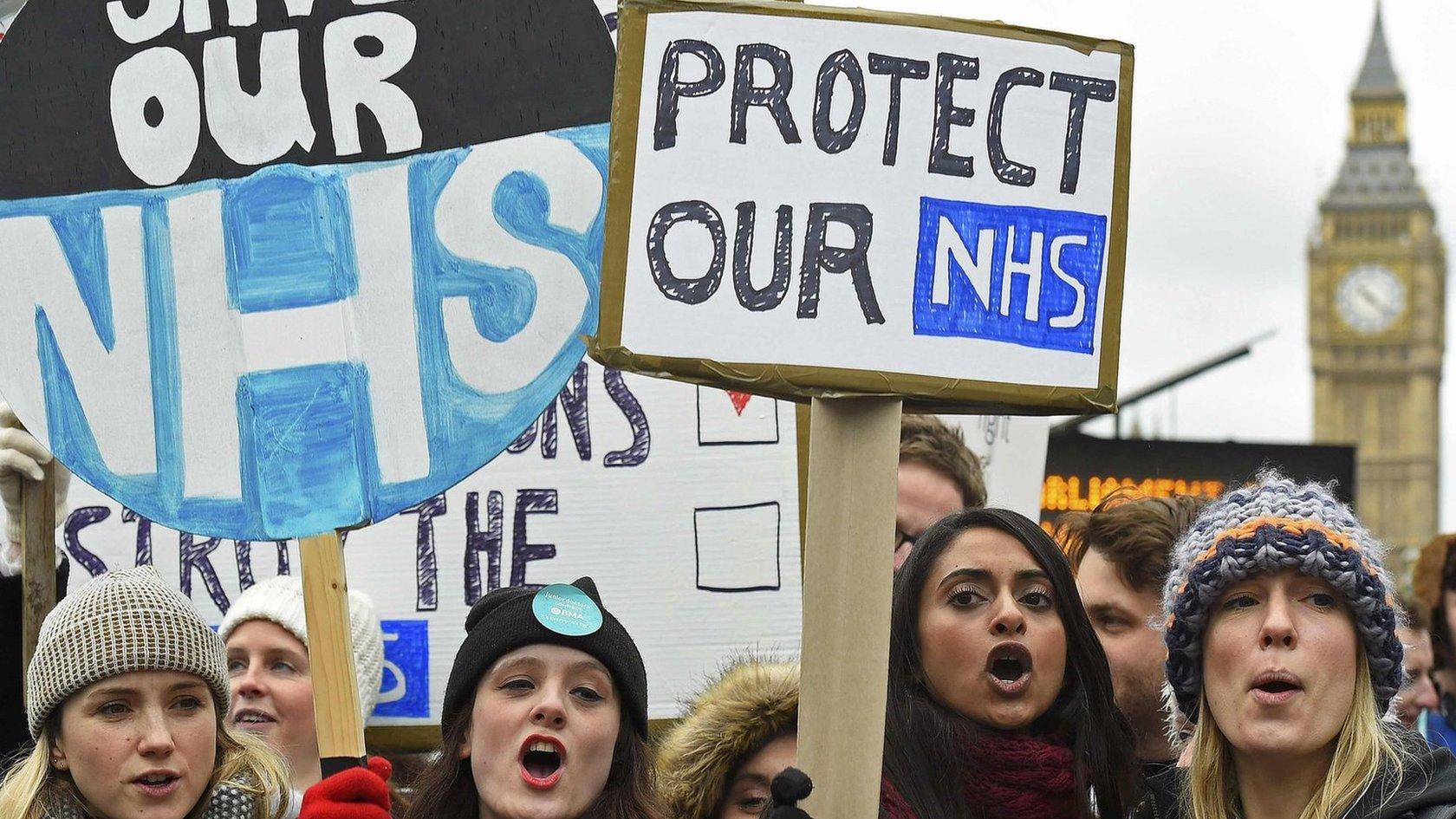
- Published12 January 2016
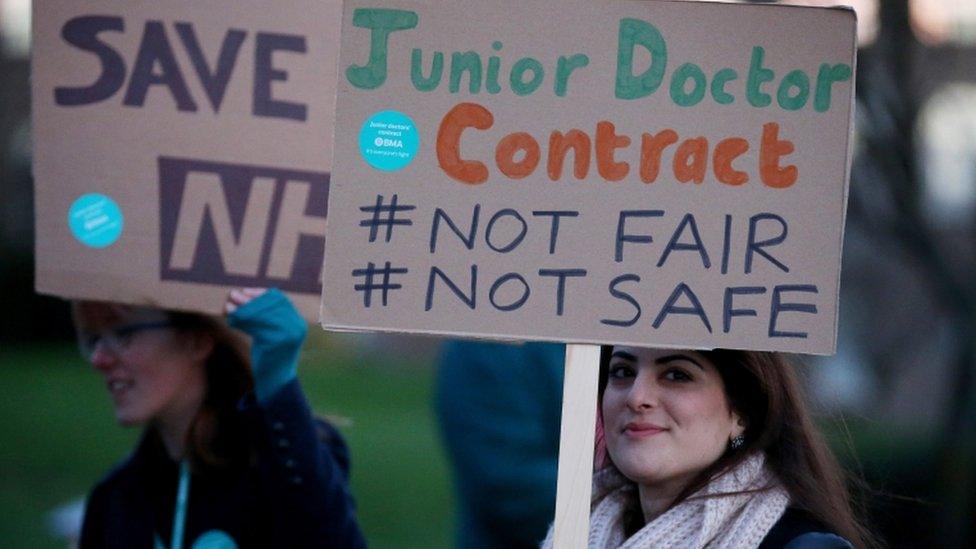
- Published6 April 2016
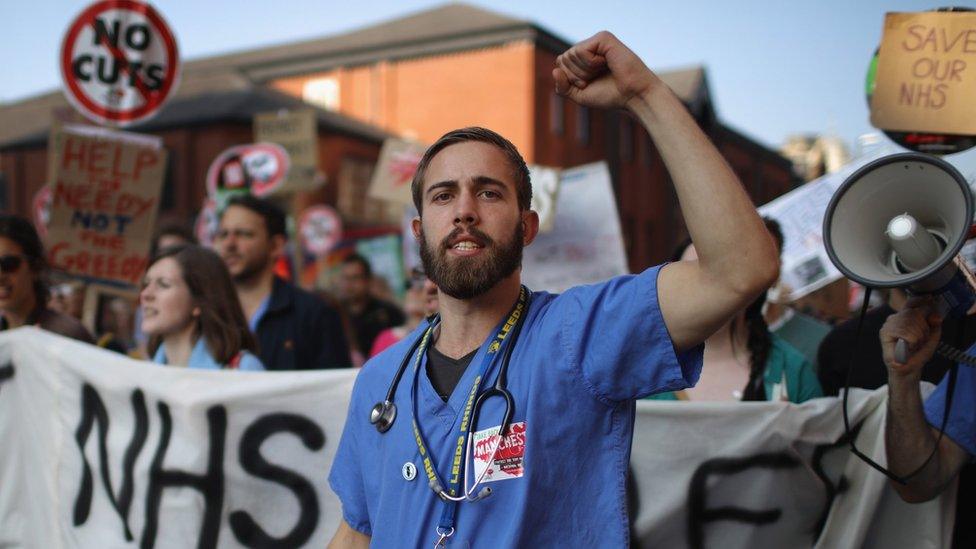
- Published26 November 2015
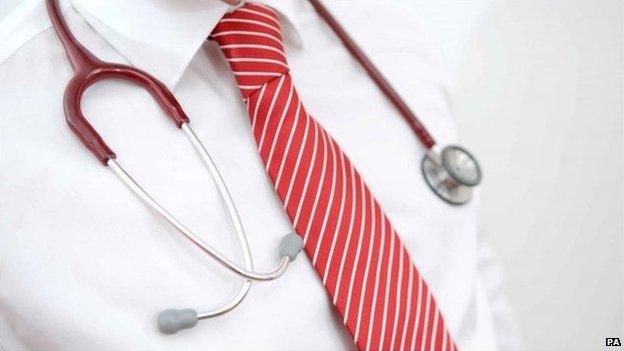
- Published15 December 2013
